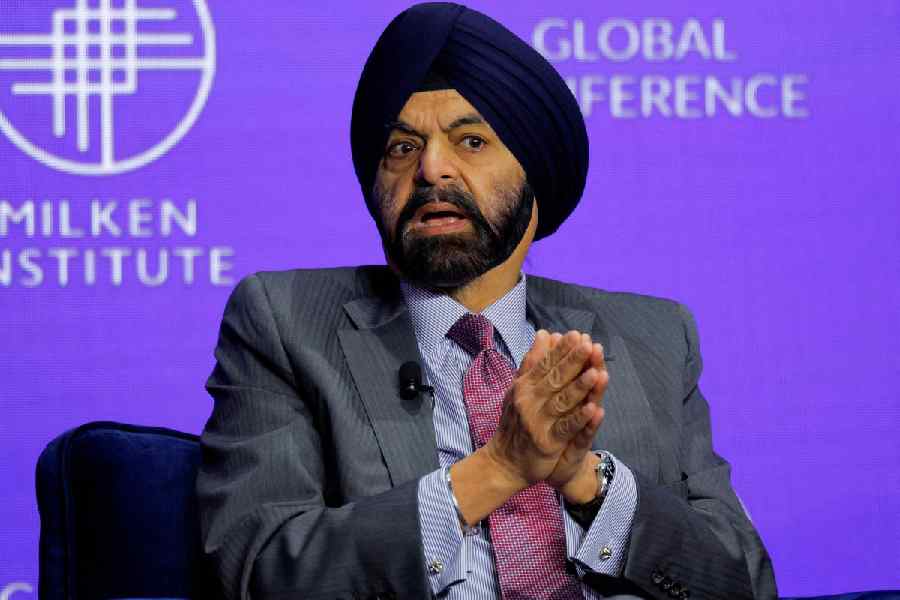 |
Kamini Rao has stopped asking couples visiting her infertility clinic what profession they pursue. “I don’t need to ask. Every third person who walks into my clinic is a software professional,” says Rao, medical director, Bangalore Assisted Conception Centre (BAAC).
When Rao started the BAAC in the 1990s, infertility was seen as a pathological problem. “But today it has become a lifestyle problem. The mouse has replaced the spouse. Young couples are so busy chasing careers that they forget that the reproductive cycle also has a life span,” says Rao, who is also president, Indian Society of Assisted Reproduction.
It is something that struck Aditi Sharma, a project manager at an information technology (IT) company in Bangalore, recently. Though Sharma had been married for almost a decade, having a baby was the last thing on her mind. “I was concentrating on my career,” says Sharma. For five years, the couple lived out of suitcases, travelling on project assignments across the globe. “Once we caught up with each other in Seattle,” she says.
Once she touched a comfort zone in her job, the couple began thinking of having a child. “That’s when we started sparing some personal moments for each other,” says Sharma. But one year down the line, she has been unable to conceive. “Doctors tell me that stress and a hectic lifestyle have affected my fertility,” she says. The couple is now seeking counseling for adopting a baby.
High-stress software jobs have wreaked havoc in Bangalore’s bedrooms. The result, specialists say, is that infertility is increasing. “A large number of young working couples in Bangalore have sex once in 120 days, versus alternate days in normal couples,” says Padmini Prasad, gynaecologist and director, Institute of Sexual Medicine, Bangalore.
Rao is replete with stories of couples who have no time to tango. “Recently, a woman asked me to draw her ovulation cycle for three months, so that she could take time out to conceive,” she says. She also knows of many couples who live as paying guests under one roof. “When one is at home, the other is in office. Otherwise, they are both travelling to different countries. They have no time to invest in a physical relationship,” says Rao.
Couples who have infrequent sexual activity miss the ovulation period that is conducive to conceiving. Also, sexually inactive women suffer from vaginismus, or painful intercourse, which hinders conception. “So sexual dysfunction often leads to infertility,” says Prasad. She adds that 20 per cent of her patients come with infertility complaints. “Five years ago, only five per cent of patients came with infertility issues,” says Prasad.
So intrigued was Kamini Rao with the flagging libidos of Bangalore’s IT couples that she conducted a study in 2002 on the sexual habits of 1,920 software professional couples in the city. “The results were startling,” she says. The study found that one in four couples reported sexual dysfunction. “Once a week, one partner per couple made an excuse to avoid sex,” says Rao.
In medical parlance, infertility is the failure to become pregnant after one year of regular, unprotected intercourse. Bangalore might be topping the infertility charts but other urban Indian cities are not far behind. “Infertility has become the single largest disease affecting people between 20 and 40 years of age. About 15 per cent of couples in India are infertile,” says Rao. In comparison, diabetes — which is also spreading rapidly in urban India — affects three to five per cent of people.
In 2003, the Mumbai-based Malpani Infertility Clinic started a support group for infertile couples, called Infertility Friends. “Its aim is to build a network of couples who can support each other. Our membership runs into hundreds,” says Aniruddha Malpani, head, Malpani Infertility Clinic and founder of the support group. At his clinic, which specialises in in-vitro fertilisation (IVF), Malpani attends to eight new infertility patients every day, besides 20 new virtual patients who seek consultation through his website. “Five years ago, I saw three new patients a day,” says Malpani.
The infertility industry is, clearly, booming in India. Currently, there are 300 IVF clinics across India. The numbers are projected to double in the next two years. “Infertility is a Rs 3 billion industry in India,” says Malpani.
Medical wisdom dictates that women should finish having babies by the time they are 30, after which fertility levels begin to drop. “But working couples have no time for babies. They postpone pregnancies till they’re well into their 30s. For many, it’s too late by then,” says Sulochana Gunasheela, gynaecologist and director, Gunasheela Surgical & Maternity Hospital, Bangalore.
Gunasheela says that working women often get inseminated even if they are capable of conceiving. Two months ago, a software engineer checked into Gunasheela’s clinic asking for his sperm to be collected and stored. “He was leaving for Hong Kong and his wife was due to ovulate in 15 days. Since the couple wouldn’t be together to conceive naturally, they opted for inter-uterine insemination,” says Gunasheela. The gynaecologist gets 80 patients for inter-uterine insemination and 50 IVF patients at her clinic every month.
Infertility is largely a psychosomatic problem among India’s upper class, say psychologists. Stress, for instance, is bad for baby making. “Stress plays havoc with sex lives. It leads to problems like erectile dysfunction, reduction in sperm count and impotence in men,” says Sujata Sharma, clinical psychologist and marriage counsellor, Parivartan Centre for Mental Health, New Delhi.
In women, an anxious lifestyle affects the intra uterine environment and the quality of ova and also causes menstrual disturbances.
Also, nocturnal call centre employees suffer from hormonal disturbances caused by changing sleep rhythms and bio-cycles. “Hormonal disorders in women lead to disturbed egg release and ovulation and poly cystic ovarian diseases. These cause infertility,” says Bangalore-based sexologist Padmini Prasad. Night shift jobs also mean that couples often meet each other only on weekends.
Pollution is a villain too. The carbon monoxide inhaled during long-distance commutes to work affects fertility in men. “It reduces sperm count,” says Prasad. Also, bad food habits — like the growing consumption of heat-and-eat food — and obesity caused by sedentary jobs and lack of exercise contribute to causing infertility.
As the stork stops visiting an increasing number of urban couples, adoption is not surprisingly on the rise in the state. “In Karnataka, adoption is growing by 100 per cent every year. Of all adoption cases, 90 per cent happen in Bangalore,” says Ali Khwaja, secretary, Voluntary Coordinating Agency for Adoption, Karnataka.
The stork, these days, is being seen as a near-endangered species. In India’s own silicon city, the little bundle that the bird is said to carry may also fast become one.










